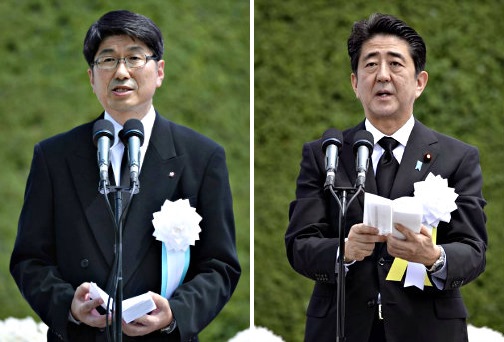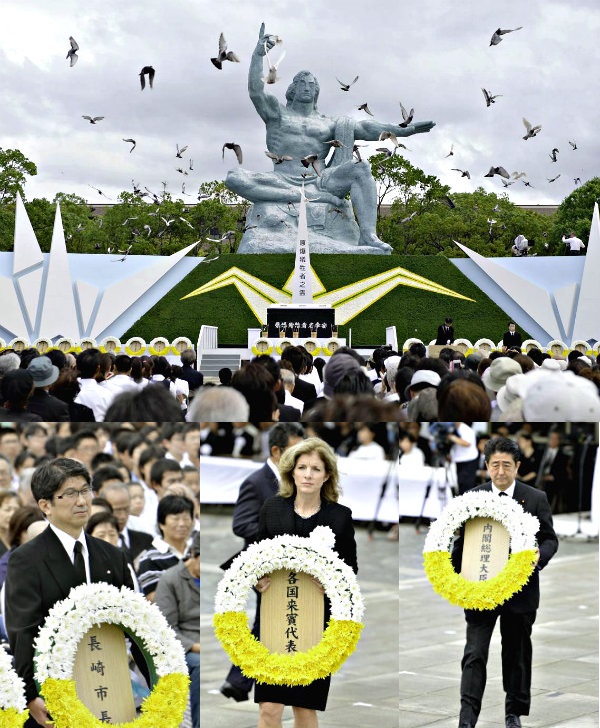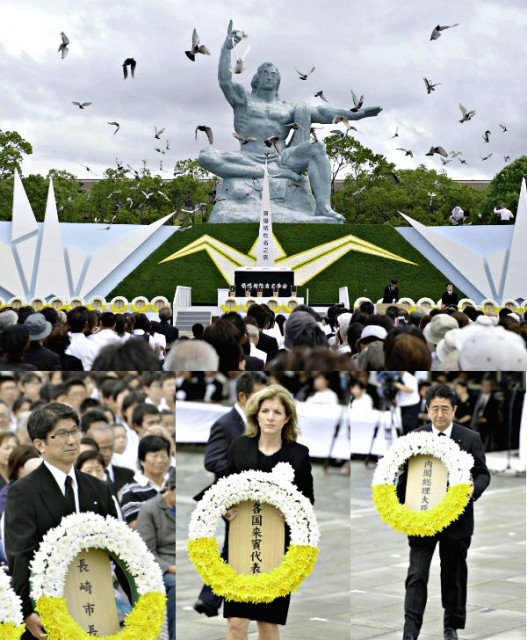Nagasaki, Japan – The Japanese city of Nagasaki celebrated the 69th anniversary of the atomic bombing of the city last August 9, Saturday. Inline with the celebration, Nagasaki mayor Tomihisa Taue raised questions with regards to the Japanese Prime Minister’s current push for a more aggressive defense policy.
The commemoration of the 69th anniversary of the atomic bombing of Nagasaki was attended by thousands including a number of representatives from 51 various countries along with US Ambassador Caroline Kennedy. Japanese Prime Minister Shinzo Abe was also in attendance.
The crowd offered a minute of silence and said prayers for the Nagasaki victims as the bells rang at 11:02 AM, the exact time the atomic bomb was dropped over Nagasaki on August 9, 1945. Wreaths of white and yellow chrysanthemums were also laid at the Statue of Peace.
Nagasaki Mayor Tomihisa Taue poured forth his criticisms on the Prime Minister in his peace declaration. Taue pressed the Japanese government to listen to the growing number of voices who have expressed concerns that Japan’s commitment to its pacifist pledge is waning.
Currently, the country is divided over their government’s decision to give permission to its military to come in defense to foreign countries as well as to play a greater role overseas. They called this push as collective self-defense. To achieve that, however, Prime Minister Shinzo Abe and his cabinet emended their interpretation of the country’s constitution which renounces war.
According to Mayor Tomihisa Taue, the pacifism enshrined in the constitution of Japan has been the founding principle of both the country and the city of Nagasaki. And the driven debate for collective self-defense has aroused concerns that this very same principle is on shaky grounds. He, then, urged PM Abe and his cabinet to not let these concerns fall into deaf ears.
In connection to Japan’s push for a more assertive defense policy, polls have shown that more than half of the respondents are against it due mainly to the sensitivity over the wartime history of the country and the devastation the past wars have wrought home.

A representative of the Nagasaki atomic bomb survivors, 75-year-old Miyaki Jodai, also spoke in the said ceremony. In his speech, he cited that PM Abe’s government was not living up as to how it was expected to. According to him, putting more weight on military power is outrageous and is a great breakaway from the country’s pledge of pacifism.
On the other hand, the Japanese Prime Minister remained motionless with eyes closed as he listened to the outright criticisms from the two speakers, so rare in a commemoration ceremony. When his turn came, PM Abe made no mention about the defense policy nor the pacifist constitution. He only expressed his sympathies to the victims and stated that as Japan is the sole victim of nuclear attacks, it has the responsibility to take the initiative in attaining a society that’s nuclear-free as well as spreading the inhumane effects brought about by the use of nuclear weapons.
According to Kyodo News, Abe’s speech was tweaked from last year as the Prime Minister was at the receiving end of backlash when the speech he delivered in Hiroshima Thursday was almost the same as what he had given last year.

